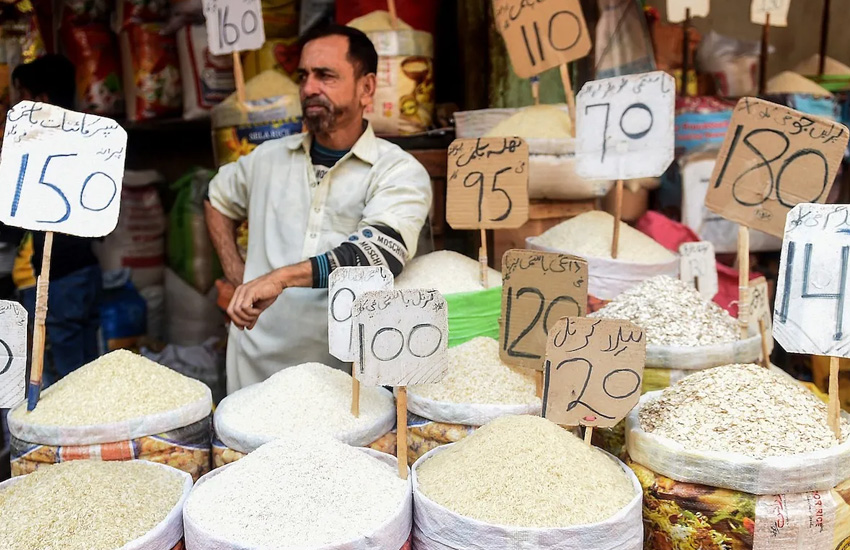In the final ashra (10 days) of Ramazan, Pakistan grapples with a resurgence in inflation, with the latest statistics revealing a notable uptick in prices.
According to recent reports, inflation has begun to rise once again during the last few days of the holy month of Ramazan, with the inflation rate increasing by approximately 0.96% just last week alone. On an annual basis, the inflation rate has surged to 29.45%.
The Pakistan Bureau of Statistics highlights that during the past week, 16 essential items experienced price hikes, while prices of 13 commodities decreased, and 22 remained stable.
Key items such as tomatoes witnessed a significant price hike of Rs11 per kilogramme, while the cost of live chicken surged by over Rs13 per kg. Additionally, onions saw a Rs3 increase, while garlic jumped by Rs4 per kg. Beef and mutton prices also climbed by Rs7 per kg.
The rise in prices extends beyond food items, with essential commodities like rice, branded ghee, petrol, clothes, and footwear becoming costlier, further straining household budgets.
Also Read: Sugar price set to rise as mill owners seek 1m tons export permission
However, there were some reprieves as well, with the price of a 20kg bag of flour decreasing by Rs70 and eggs becoming cheaper by Rs6 per dozen.
The list of items seeing a decrease in prices also includes daal moong, daal masoor, sugar, potatoes and bananas, as per the Bureau of Statistics.
On an annual basis, the surge in prices is even more alarming, with certain items experiencing significant spikes. For instance, onion prices have skyrocketed by over 107%, while red chilli prices surged by 86% in just a year. Other essentials such as garlic, tomatoes, and jaggery have also become considerably more expensive, increasing by 54%, 36%, and 34%, respectively.
Moreover, essential household items like salt, daal mash, and tea have seen substantial price hikes of 33%, 27%, and 23% on an annual basis. Gas charges have soared by a staggering 570% compared to last year.
However, prices of items like ghee, cooking oil, and diesel witnessed a decrease compared to the previous year.



























